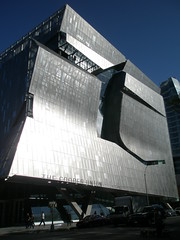Opponents of tuition charges at Cooper Union are voicing disappointment at the school’s decision to begin asking tuition of graduate students. The move comes just days before a meeting in which students and faculty members will unveil their own strategies to bring solvency to the financially strapped school.
As The Times reported, Jamshed Bharucha, the school’s president, announced today that starting next year, graduate students will have to pay tuition fees currently covered by scholarships. Undergraduates enrolled for this fall and next year, he assured, will not be charged tuition, as some had feared would happen.
Alan Lundgard, the student council president who recently convinced media outlets that Cooper Union had sold its new academic building to NYU, welcomed the news that undergraduates were off the hook for the time being, but worried that they might be charged tuition in the future. “It’s a step in the right direction,” he told The Local, “but one step in the right direction and a step in the wrong direction don’t really get us anywhere.”
Last week, Mr. Lundgard helped organize a protest play, followed by a jubilant march around the school, in which a student acting as President Bharucha signed a pledge to uphold the school’s mission statement and to continue to offer full-tuition scholarships.
Today, he voiced disappointment that reality didn’t follow suit. “We’ve suspected that this is the direction things have been moving in for a while,” he said. “This will be met with fervent opposition from the community in that there was no consultation at any point with members of the community.”
Henry Chapman, co-founder of a consortium of faculty, students, and alumni going by the name of Friends of Cooper Union, said the group would present a document reflecting 400 proposals it had received for cutting costs and generating revenue without charging tuition.
The document, which will be discussed at a “community summit” at the school’s Great Hall on Thursday at 5:30 p.m., outlines up to $5 million in potential cuts and up to $2 million in possible revenue, Mr. Chapman said.
In a letter posted to Cooper Union’s website today, President Bharucha writes that he believes his “framework for action” – which calls for a fee-based expansion of graduate, continuing education, online and interdisciplinary programs – has “broad support,” though he acknowledges both those who believe the school should go a step further and begin charging tuition to undergraduates, and those who believe neither graduates nor undergraduates should be charged. Addressing the latter group, he writes, “Our preliminary financial analysis shows starkly that new, reliable and scalable streams of revenue are imperative – over and beyond what an ambitious fundraising strategy may be relied upon to yield, and sooner than a set of options with long term promise can deliver.”
According to Mr. Chapman, President Bharucha has indicated he will attend Thursday’s summit, which is a hopeful sign. “The decision to go to The Times and make this announcement about a graduate program does signal that the president isn’t willing to take into consideration what the community is saying,” he said, “but at the same time I think the summit and the document are really going to be persuasive.”
Meanwhile, tomorrow, students are planning a walkout as part of 1T Day, a national day of action meant to raise awareness for student debt. They’ll join protesters in Union Square at 4 p.m. and march to Wall Street.




